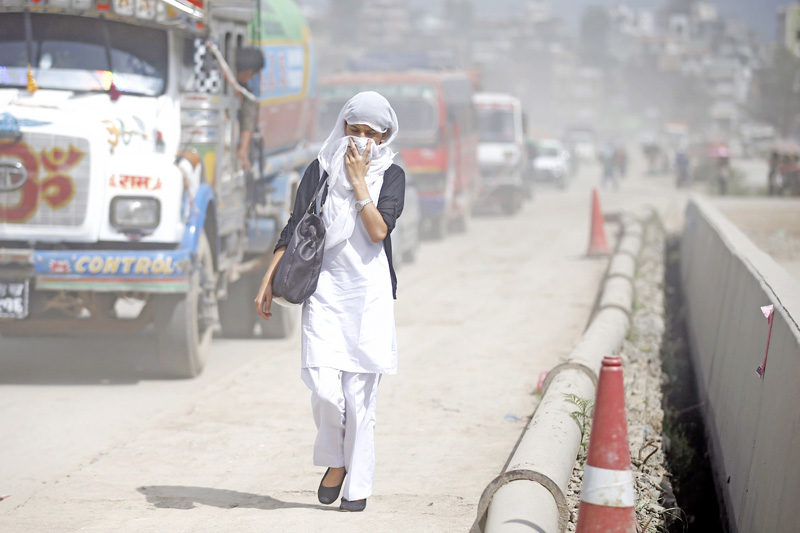Ways to curb pollution discussed
Kathmandu, December 21
The National Human Rights Commission today held a discussion with the government officials and environment experts to seek their opinion and suggestions on reducing the adverse impact of air pollution on human health.
NHRC Secretary Bed Prasad Bhattarai said the discussion dwelt on the impacts of air pollution caused by dust and smoke, risk mitigation measures, operation procedures of factories and need for effective monitoring of pollution-emitting factories, among others.
During the discussion, government officials and environment experts gave a slew of suggestions on measures to be taken by the federal, provincial and local levels to enhance and maintain environmental cleanliness.
NHRC members and officials from the Ministry of Federal Affairs and General Administration, Ministry of Industry, Commerce and Supplies and Department of Environment participated in the discussion. The NHRC said unplanned digging of roads, poor implementation of development projects, unsafe disposal of hospital and industrial wastes, air pollution due to dust and smoke emitted by brick kilns, vehicular emission, irregular collection and disposal of household wastes, delay in blacktopping roads and haphazard dumping of construction materials, among others, were responsible for increasing environmental pollution in the valley.
Article 35 (4) of the constitution establishes each citizen’s right to safe drinking water and sanitation as fundamental rights. Similarly, Article 30 (1) says that each citizen shall have the right to live in a clean and healthy environment and enjoy compensation for the harm caused by pollution.
According to the DoE, PM10 is measured at an average of 190 micrograms per cubic meter (µg/m3) in Kathmandu. World Health Organisation considers air unsafe when average exposure to fine particulate matter exceeds 10 µg/m3.






